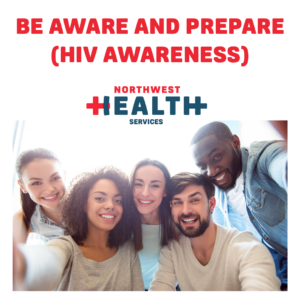 BE AWARE AND PREPARE!!
BE AWARE AND PREPARE!!
Many adults don’t like to even think about HIV. They certainly don’t want to think their children or young adult loved ones could be at risk of contracting HIV. Yet, whether or not we want to think about it–the reality is—our youth are definitely at risk.
Young adults have a lot going on. This is especially true in the Spring. Prom is just around the corner. For many, graduation is on the horizon. So much to look forward to, so much to celebrate! Through the years, there have been various awareness campaigns aimed at teens and young adults to wear their seat belts and not to drink and drive. More recently, they’ve been encouraged to put the phone down while driving. We can all agree bringing awareness of these hazards is important. But what about protecting our youth from contracting HIV? Not quite as popular a topic. Yet in 2020, 20% of all new HIV diagnoses were in the age group of 13-24 years old—right in the prime of their lives! Even more alarming (as mentioned in February’s post), African Americans made up a disproportionate number of new HIV diagnoses. In 2020, African Americans accounted for 55% of new HIV diagnoses in the age group of 13-24.
As has been proven by the various awareness campaigns, preventative measures are highly effective. What about preventive measures to reduce, or better yet, eliminate new HIV diagnoses in our youth? Advances in research and science have given us the tools. The rest is up to us.
As a reminder to parents and guardians of teens and young adults—please educate yourselves on the importance of safer sex practices. This includes not just birth control, but regular testing for STIs, STDs and HIV. STIs and STDs can be effectively treated. HIV, however, is forever! There is no cure for HIV but there are options for prevention and treatment. PrEP is a highly effective medication to prevent HIV. Being tested and, if the result is positive, getting into care with a specially trained medical professional is of the utmost importance! Sadly though, in 2019 (most recent data available) only 79% of youth aged 13 to 24 newly diagnosed with HIV were successfully linked to care.
Many young people who are at risk for HIV receive insufficient sex education and/or experience health-related inequities linked to low testing rates, high rates of sexually transmitted diseases, and low condom use. Talk with your healthcare provider today to discuss appropriate sexual health for teens and young adults. We don’t like to think they are at risk, but don’t be naïve about teens and sex. According to 2020 statistics, 25% of 9th graders admit to having sex. This increases to 60% by 12th grade! Also—16% of males and 15% of female high school seniors report having had 4 or more sexual partners.
So, be aware and prepare!! For more information about HIV risks, testing and prevention, please contact our Prevention Specialist, Janet Miller @ 816-901-1034.
Thank you for reading this Awareness Blog!
